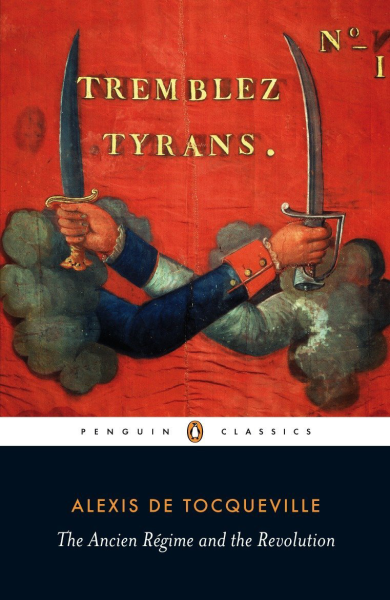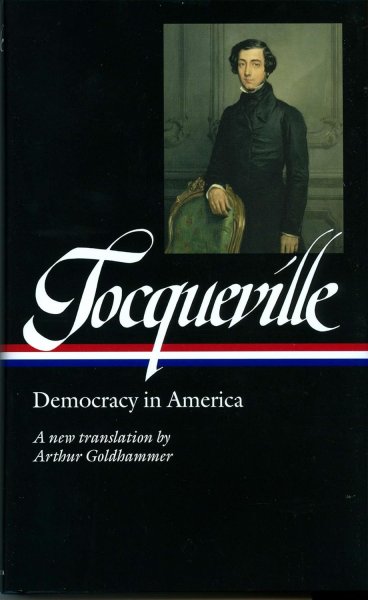De Tocqueville on Socialism
De Tocqueville on Socialism
I have never thought of Socialism as anything but a swindle. Its pedlars promise a utopia on earth—fueled by the equality of all citizens—an end to economic oppression, a higher standard of living, and an era of good feeling, unlike any other. But study the details closely, and you wonder why in the hell anyone would want to live in such a place? Can humans make a living in the clouds? Can the clouds support their weight? Eastern Europe is still cleaning up the rubble from Socialism's last flirt with the clouds.
Alexis De Tocqueville worried that the left-wing intellectuals behind the Revolution of 1848 had in mind a socialist government, and he spoke forthrightly of his reservations:
A. From Democracy in America, volume 2, chapter 6:
1) The socialist administration, having taken each member of the community in its grasp,
fashions him at will. The supreme power extends its arm over the whole community with
a network of small, complicated rules, minute and uniform. Most original minds and the
most energetic characters cannot penetrate to rise above the crowd. The will of man is
softened, bent, and guided.
2) It does not tyrannize but compresses, enervates, extinguishes, and stupefies a people
to be nothing better than timid animals, of which the government is the shepherd.
B. From "Discourses Before the Assembly on the Subject of a Constitution":
1) Democracy extends the sphere of individual freedom; socialism restricts it. Democracy
attaches all possible value to each man; socialism makes each man a mere agent, a mere
number. Democracy and socialism have nothing in common but one word: "equality". But
notice the difference: while democracy seeks equality in liberty, socialism seeks equality
in restaint and servitude.
2) Now, the first characteristic of all socialist ideologies is an incessant and extreme appeal
to the material passions of man.
3) A second trait is an attack on the principle of private property. From the first socialist
who said, fifty years ago, jthat "Property is the origin of all the ills of the world," to the
socialist who exclaimed that "Property is theft," socialists destroy the principle upon which
it is based, diminish it, obstruct it, limit it, and mold it into something completely foreign
to what we know as "private property".
4) Now, the final trait is a profound opposition to personal liberty and scorn for individual
reason—a complete contempt for the individual.
C. From Democracy in America, volume 1, chapter 16:
1) The profession of law is the only aristocratic element which can be amalgamated without
violence with the natural elements of democracy.
2) I cannot believe that a republic could subsist at the present time if the influence of lawyers
in public business did not increase in proportion to the power of the people.
D. From the Address at an American Fourth of July Celebration in Paris:
1) Connecticut, that little yellow spot (on the map) that employs the clock-pedlars, the
schoolmaster, and the senator—the first gives you the time; the second tells you want to do
with it; and the third makes your law and your civilization.
More than anything, I can appreciate de Tocqueville's understanding of the basic need of republican societies to live under the rule of law—not the rule of a single man or a clique of insiders situated above the common people, nor the rule of a majority of citizens over a minority. He understood that only the rule of law, embodied by lawyers—from the lowly family lawyer to the district attorney's office—give a society the ability to hold tyranny and favoritism at bay.


